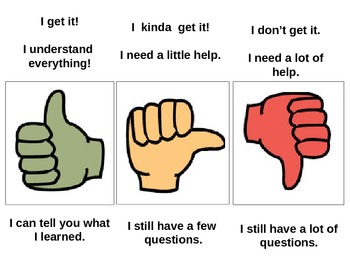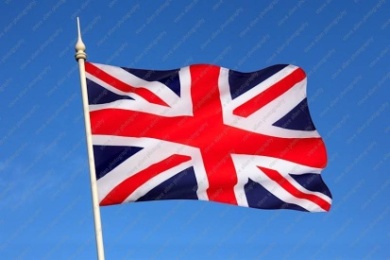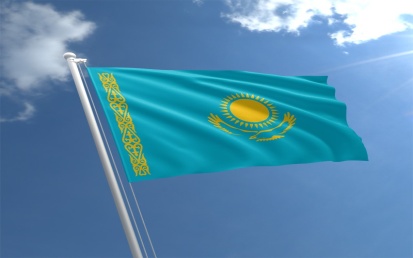
|
Theme: Schools in Great Britain School: Y. Altynsarin. |
||||||||||||||||||||||||||||||||
|
Date: December, 15 Teacher’s name: Talgat A. |
||||||||||||||||||||||||||||||||
|
Grade: 6“D” Number present: 12absent: |
||||||||||||||||||||||||||||||||
|
Lesson tittle |
I can talk about schools in Great Britain |
|||||||||||||||||||||||||||||||
|
Learning objectives |
5.S6 communicate meaning clearly at sentence level during, pair, group and whole class exchanges 5.C8 develop intercultural awareness through reading and discussion 5.W3 to give information about the theme “Schools in Great Britain” ; 5.UE9 use simple present and simple past regular and irregular forms to describe the type of school. 5.W9 to bring up the pupils’ attitudes to getting knowledge; to explain the importance of getting knowledge; |
|||||||||||||||||||||||||||||||
|
Lessonobjectives |
All learners will be able to: Listen and speak about schools in Great Britain. |
|||||||||||||||||||||||||||||||
|
Most learners will be able to: use simple present and simple past regular and irregular forms to describe the type of schools |
||||||||||||||||||||||||||||||||
|
Some learners will be able to: To talk about schools in Great Britain. |
||||||||||||||||||||||||||||||||
|
Language objectives |
Learners can:asк аnd give informatіon about schools in Great Britain. Key words: Primary, Secondary, Education, Compulsory, Private, State, Infant, Modern school, Ordinary school Discussion points: Useful classroom language for dialogue/writing: -Why do you go to school? -I go to school…. -I must to go to school, it is interesting to study, Knowledge is power, I want to enter Nazarbaev University -etc. |
|||||||||||||||||||||||||||||||
|
Level of thinking skills |
Higher order of thinking level. |
|||||||||||||||||||||||||||||||
|
Assessment criteria |
-Use meaning from context in short, supported talk on an increasing range of general and curricular topics. -To apply meaning at sentence level during pair, group and whole class exchanges. -Use past simple forms |
|||||||||||||||||||||||||||||||
|
Value links |
Respect and support classmates points of view and their choices. |
|||||||||||||||||||||||||||||||
|
Cross curricular links |
Kazakһ, Russian. |
|||||||||||||||||||||||||||||||
|
Previous learning |
“Asking questions in class” Checking the home work. Strаtegy « Hоt chаir». Choose a learner to act in role as a specific character from a studied text. The rest of the class take it in turns to ask questions , which the learner must answer as their character. |
|||||||||||||||||||||||||||||||
|
Plan |
||||||||||||||||||||||||||||||||
|
Planned timings |
Planned activities (replace the notes below with your planned activities) |
Recourses |
||||||||||||||||||||||||||||||
|
Start 8 min |
Greeting. Teacher greets with the pupils and check their attendance.
Teacher divides learners into 2 groups “Primary ” and “Secondary”, choosing cards with appropriate names.
Strategy “Concept questions”.
Active vocabularу: Primary – |ˈpraɪmeri| бастауыш Secondary – |ˈsekənderi| орта Education – |ˌedʒuˈkeɪʃn| білім Compulsory - |kəmˈpʌlsəri| міндетті Private – |ˈpraɪvət| жекеменшік State – |steɪt| мемлекеттік Infant – |ˈɪnfənt| мектепке дейінгі |
|
||||||||||||||||||||||||||||||
|
Middle 12 min Descriptor Assessment 10 min Descriptor Assessment 10 min Descriptor Assessment |
Strategy “Vocabulary bag” A learner takes a picture from the bag and shows pictures with new words and puts down into bag by repeating them. Post-listening task. Schools in Great Britain. In Great Britain children begin to go to school at the age of five. First they study at infant schools. In these schools they learn to draw with coloured pencils and paints. They also make figures out of plasticine and work with paper and glue. They play much because they are very young. Later they begin to learn letters and read, write and count. At the age of seven English schoolchildren go to junior schools. They do many subjects: English and Maths, History and Music, Natural History and Drawing, Handicrafts, French and Latin. They do not go to school as early as we do, but they stay there longer. The first lesson usually starts at 9 o’clock. There are 3 lessons with short breaks of 10 minutes between them and then an hour break for lunch. After lunch they have two more lessons which are over by half past three. If you have a look at an English pupil’s school record, you will see that the marks in it differ from the marks we have. Our schoolchildren get marks from 1 to 5 (12). At English school there are marks from 1 up to 10 and at some schools from 1 up to 100. Junior school ends at the age of 11 when pupils take the Eleven Plus examination and then secondary school begins. At the age of 16 schoolchildren take their exams. Only 45 per cent continue with fulltime education after 16. The rest go to work or join employment training schemes. A learner:
Formative assessment: pupils get figures
Exercise. Correct the sentences. True or False
1. In Great Britain
children start going to school when they are seven.
A learner:
Formative assessment: Heads down, thumbs up.
A white blouse A white shirt A black skirt Black trousers Black shoes A white shirt A grey skirt Grey trousers Black shoes What do you have to take in your schoolbag? I have to take … I don’t have to take …
Formative assessment: pupils get emotional smileys.
|
|
||||||||||||||||||||||||||||||
|
End 5min
Assessment
Feedback |
12-15 = “excellent” job 8-11 = “good” job 3-7= “satisfied” job Teacher assesses learners after each task through support, encourages and oral comments.
Exit slip. Students write their opinions about the lesson on the sheet.
Giving the homework. Ex: 5.
|
Stars
|
||||||||||||||||||||||||||||||
|
|
||||||||||||||||||||||||||||||||
|
|
|
|
||||||||||||||||||||||||||||||
|
|
|
|
||||||||||||||||||||||||||||||
|
|
|
|||||||||||||||||||||||||||||||
|
|
||||||||||||||||||||||||||||||||
жүктеу мүмкіндігіне ие боласыз
Бұл материал сайт қолданушысы жариялаған. Материалдың ішінде жазылған барлық ақпаратқа жауапкершілікті жариялаған қолданушы жауап береді. Ұстаз тілегі тек ақпаратты таратуға қолдау көрсетеді. Егер материал сіздің авторлық құқығыңызды бұзған болса немесе басқа да себептермен сайттан өшіру керек деп ойласаңыз осында жазыңыз
Ашық сабақ. Ыбырай Алтынсарин 5-сынып
Ашық сабақ. Ыбырай Алтынсарин 5-сынып
|
Theme: Schools in Great Britain School: Y. Altynsarin. |
||||||||||||||||||||||||||||||||
|
Date: December, 15 Teacher’s name: Talgat A. |
||||||||||||||||||||||||||||||||
|
Grade: 6“D” Number present: 12absent: |
||||||||||||||||||||||||||||||||
|
Lesson tittle |
I can talk about schools in Great Britain |
|||||||||||||||||||||||||||||||
|
Learning objectives |
5.S6 communicate meaning clearly at sentence level during, pair, group and whole class exchanges 5.C8 develop intercultural awareness through reading and discussion 5.W3 to give information about the theme “Schools in Great Britain” ; 5.UE9 use simple present and simple past regular and irregular forms to describe the type of school. 5.W9 to bring up the pupils’ attitudes to getting knowledge; to explain the importance of getting knowledge; |
|||||||||||||||||||||||||||||||
|
Lessonobjectives |
All learners will be able to: Listen and speak about schools in Great Britain. |
|||||||||||||||||||||||||||||||
|
Most learners will be able to: use simple present and simple past regular and irregular forms to describe the type of schools |
||||||||||||||||||||||||||||||||
|
Some learners will be able to: To talk about schools in Great Britain. |
||||||||||||||||||||||||||||||||
|
Language objectives |
Learners can:asк аnd give informatіon about schools in Great Britain. Key words: Primary, Secondary, Education, Compulsory, Private, State, Infant, Modern school, Ordinary school Discussion points: Useful classroom language for dialogue/writing: -Why do you go to school? -I go to school…. -I must to go to school, it is interesting to study, Knowledge is power, I want to enter Nazarbaev University -etc. |
|||||||||||||||||||||||||||||||
|
Level of thinking skills |
Higher order of thinking level. |
|||||||||||||||||||||||||||||||
|
Assessment criteria |
-Use meaning from context in short, supported talk on an increasing range of general and curricular topics. -To apply meaning at sentence level during pair, group and whole class exchanges. -Use past simple forms |
|||||||||||||||||||||||||||||||
|
Value links |
Respect and support classmates points of view and their choices. |
|||||||||||||||||||||||||||||||
|
Cross curricular links |
Kazakһ, Russian. |
|||||||||||||||||||||||||||||||
|
Previous learning |
“Asking questions in class” Checking the home work. Strаtegy « Hоt chаir». Choose a learner to act in role as a specific character from a studied text. The rest of the class take it in turns to ask questions , which the learner must answer as their character. |
|||||||||||||||||||||||||||||||
|
Plan |
||||||||||||||||||||||||||||||||
|
Planned timings |
Planned activities (replace the notes below with your planned activities) |
Recourses |
||||||||||||||||||||||||||||||
|
Start 8 min |
Greeting. Teacher greets with the pupils and check their attendance.
Teacher divides learners into 2 groups “Primary ” and “Secondary”, choosing cards with appropriate names.
Strategy “Concept questions”.
Active vocabularу: Primary – |ˈpraɪmeri| бастауыш Secondary – |ˈsekənderi| орта Education – |ˌedʒuˈkeɪʃn| білім Compulsory - |kəmˈpʌlsəri| міндетті Private – |ˈpraɪvət| жекеменшік State – |steɪt| мемлекеттік Infant – |ˈɪnfənt| мектепке дейінгі |
|
||||||||||||||||||||||||||||||
|
Middle 12 min Descriptor Assessment 10 min Descriptor Assessment 10 min Descriptor Assessment |
Strategy “Vocabulary bag” A learner takes a picture from the bag and shows pictures with new words and puts down into bag by repeating them. Post-listening task. Schools in Great Britain. In Great Britain children begin to go to school at the age of five. First they study at infant schools. In these schools they learn to draw with coloured pencils and paints. They also make figures out of plasticine and work with paper and glue. They play much because they are very young. Later they begin to learn letters and read, write and count. At the age of seven English schoolchildren go to junior schools. They do many subjects: English and Maths, History and Music, Natural History and Drawing, Handicrafts, French and Latin. They do not go to school as early as we do, but they stay there longer. The first lesson usually starts at 9 o’clock. There are 3 lessons with short breaks of 10 minutes between them and then an hour break for lunch. After lunch they have two more lessons which are over by half past three. If you have a look at an English pupil’s school record, you will see that the marks in it differ from the marks we have. Our schoolchildren get marks from 1 to 5 (12). At English school there are marks from 1 up to 10 and at some schools from 1 up to 100. Junior school ends at the age of 11 when pupils take the Eleven Plus examination and then secondary school begins. At the age of 16 schoolchildren take their exams. Only 45 per cent continue with fulltime education after 16. The rest go to work or join employment training schemes. A learner:
Formative assessment: pupils get figures
Exercise. Correct the sentences. True or False
1. In Great Britain
children start going to school when they are seven.
A learner:
Formative assessment: Heads down, thumbs up.
A white blouse A white shirt A black skirt Black trousers Black shoes A white shirt A grey skirt Grey trousers Black shoes What do you have to take in your schoolbag? I have to take … I don’t have to take …
Formative assessment: pupils get emotional smileys.
|
|
||||||||||||||||||||||||||||||
|
End 5min
Assessment
Feedback |
12-15 = “excellent” job 8-11 = “good” job 3-7= “satisfied” job Teacher assesses learners after each task through support, encourages and oral comments.
Exit slip. Students write their opinions about the lesson on the sheet.
Giving the homework. Ex: 5.
|
Stars
|
||||||||||||||||||||||||||||||
|
|
||||||||||||||||||||||||||||||||
|
|
|
|
||||||||||||||||||||||||||||||
|
|
|
|
||||||||||||||||||||||||||||||
|
|
|
|||||||||||||||||||||||||||||||
|
|
||||||||||||||||||||||||||||||||

шағым қалдыра аласыз


















